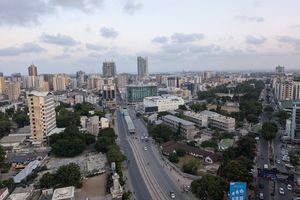Shock for 200 studying at university in Cyprus

Most of the Tanzanian students are pursuing studies in Mass Communications and Information Technology.PHOTO|FILE
What you need to know:
The Citizen verified that the CIU is not on the list of the International Association of Universities (IAU), the United Nations Educational, Scientific and Cultural Organisation (Unesco)-based worldwide association of higher education institutions.
Dar es Salaam. Nearly 200 Tanzanian students pursuing studies at a Cyprus university, could end up with worthless degree certificates, it has emerged. These are students who are enrolled at the Cyprus International University (CIU) which is not accredited to any recognised higher learning authorities.
The university, which is said to attract students from mostly African countries is based in the Turkish Republic of Northern Cyprus—a self-declared republic—that is yet to be recognised or admitted to the international community under the United Nations. Tanzania is among countries that do not recognise the Turkish Republic of Northern Cyprus as a sovereign state.
The Citizen has established that between 150 to 200 Tanzanian youth are currently at the TIU pursuing Bachelor’s, Master’s as well as PhD degrees. This is despite the precarious status of the institution and that of the country itself.
Well-placed sources at the Tanzania Commission for Universities (TCU) confirmed to The Citizen that the matter was currently under discussion at higher levels as the agency seeks an appropriate action to avoid a potentially dangerous and life-shuttering experience for the said students.
“Our concern is that the said Cyprus International University is not affiliated to any institution of higher learning and is thus not in the TCU list of accredited foreign universities,” said one of the sources who talked to The Citizen.
Most of the Tanzanian students are pursuing studies in Mass Communications and Information Technology.
Efforts at the weekend to get comment from the TCU Executive Secretary were futile. But our inquiries established that the agency wrote to the Ministry of Foreign Affairs and International Cooperation in March to seek clarification on the legal status of the Turkish Republic of Northern Cyprus. In a letter dated February 18, 2014, to the TCU, the ministry confirmed that Tanzania does not recognise this country. In reply, only Turkey was said to have recognised the Turkish Republic of Northern Cyprus as a sovereign state.
“The United Nations contends that the Turkish Republic of Northern Cyprus is a territory of the Republic of Cyprus under Turkish occupation and that the declaration of independence by the Turkish Republic of Northern Cyprus is legally invalid as evidenced in a number of UN resolutions,” reads in part the letter from the ministry signed by one Mona Manecha on behalf of the PS.
The Citizen verified that the CIU is not on the list of the International Association of Universities (IAU), the United Nations Educational, Scientific and Cultural Organisation (Unesco)-based worldwide association of higher education institutions.
Also known as the International Universities Bureau of the United Nations, it brings together 641 higher education institutions and organisations from 120 countries for “reflection and action on common concerns and collaborates with various international, regional and national bodies active in higher education.” IAU is based in Paris and is located at the headquarters of Unesco.
Last year, Kenya’s Commission for University Education warned that the CIU was an unaccredited university. Kenyan students numbering 30 were by that time among East Africans enrolled at the institution.
The Cyprus High Commission in Nairobi came out to list the University of Cyprus, Open University of Cyprus and Cyprus University of Technology as the only accredited institutions at which international students could enrol.
Northern Cyprus is an area previously blighted by civil war. With the region occupied by the Turkish army and denied recognition by the United Nations, there are no direct flights there from Africa, and African students have to travel to Istanbul, from where they get connecting flights.
Kenyan students interviewed then said the disputed north offered opportunity for them to pursue their dream courses at an “affordable cost and high quality.”




